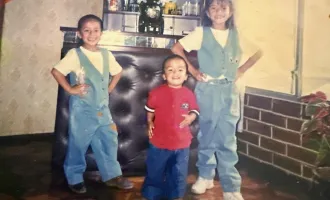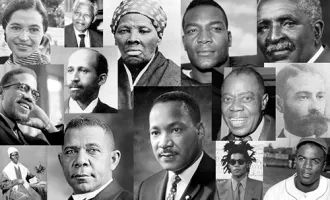Students Urge UCSF to Integrate Diversity Efforts
Student organizers urged the university to take more of a lead and to integrate diversity initiatives campus-wide during last month’s 4th Annual Leadership Forum on Diversity and Inclusion.
On Feb. 18, the forum, which was sponsored by GPSA, Multicultural Resource Center, and Interprofessional Diversity and Equity Alliance, brought together students and other members of the community for a virtual discussion about the state of diversity-related initiatives at UCSF.
Balancing Grassroots and Administration
A recurring theme throughout the forum was the imbalance between grassroots, student- or staff-led initiatives to increase diversity and equity, and top-down administrative efforts to disseminate and codify initiatives.
Forum participants explained that students often spend many hours designing and organizing diversity efforts, which, while meaningful, can take a toll when administrative offices, staff, and others are not officially sharing the work.
Several student representatives wore shirts or posted a zoom background spotlighting “front-line” students putting in these long hours to lead diversity initiatives at UCSF. The four student leaders featured were Aaron Mattingly, Roberto Diaz, Mironda Frankenberger, and Nwamaka Amobi.
“We hear you. We are talking about this constantly,” Executive Vice Chancellor Dr. Daniel Lowenstein said in response to the students’ wide range of activism.
Much of the discussion revolved around initiatives that have grown from student petitions circulated in individual schools listing demands for improvements in diversity, equity, and inclusion
Several demands were frequently repeated in the separate petitions, including greater equity in admissions and faculty recruitment, expanded support for underrepresented students and faculty, and curriculum additions.
“There is a tremendous amount of activity going on, unlike anything I’ve ever seen in all my time at UCSF,” said Lowenstein regarding recruitment of underrepresented faculty.
Chancellor Sam Hawgood said grassroots contributions make ideas more credible and useful for the community, but these contributions must be met with policymakers willing to transform them into broad policies that can benefit UCSF as a whole.
Hawgood also recognized the tension between tailoring diversity initiatives to each academic program and creating unified policies shareable across all programs. One recent step towards creating unified policy occurred in January with UCSF’s first mandatory university-wide online diversity training.
The following is a recap of student representatives’ presentations of achievements, plans, and challenges from their schools and programs.
School of Nursing ‘Not at All Inclusive’
Troublesome results from a 2018 School of Nursing survey highlighted some significant challenges needing to be addressed.
Jen Chavez and Debbie Nguyen presented the survey results, which showed that around two thirds of respondents believed the School of Nursing was “not at all inclusive.” Over half of respondents also reported having had negative experiences including exclusion or hostility.
A recent School of Nursing project for anonymous reporting of microaggressions and harm was originally slated to begin in June 2020 but eventually became subsumed into a larger UCSF initiative, said Nguyen. She and others expressed frustration that the reporting initiative was apparently stalled, with no current plans for implementation in the School.
Vice Chancellor Dr. Renee Navarro responded that a Bias Incident Response Team pilot program was just starting in the Graduate Division, with hopes of expanding later to all programs.
Dr. LaMisha Hill, Director of the Multicultural Resource Center, acknowledged the School of Nursing’s advocacy for improved incident reporting and response, and said similar efforts to address “what doesn’t get caught” have been underway for several years.
“Conversations happen in different spaces, and so sometimes all that information isn’t most effectively shared across our communities,” Dr. Hill said.
She added that the MRC was trying to design a “step-wise” approach that addressed specific needs of different schools and programs rather than a “one-size-fits-all”.
Graduate Division Strives for Cohesiveness
Max Ladow of the Graduate Division echoed frustration that program-specific initiatives “are largely idiosyncratic and depend on grassroots efforts.” For example, students who have petitioned for greater equity in admissions have largely been working on “piecemeal” efforts that can overwork students.
He contrasted this with the Graduate-Division-wide creation of new courses, both required and opt-in, on the history and impact of racism in science and on DEI leadership, led by Assistant Dean D’Anne Duncan.
Ladow said that some progress has been made around petitioned changes from 2020 related to diversity and equity, including the June 2020 Graduate Division petition, circulated via email and social media and signed by many Graduate Division members, and the Black Excellence in STEM petition, a petition from the student organization BE-STEM which was delivered in October 2020 to the Graduate Division Dean’s Office. Specific milestones included hiring Zachary Smith as Diversity and Outreach Program Manager and creating a quarterly DEI Town hall.
Ladow said he hoped that with more uniform application of ideas, there would be less risk of “reinventing the wheel,” overworking students, or losing expertise and advocacy as students graduate, as well as more centralized ways to evaluate programs.
School of Pharmacy Addresses ‘Culture of Silence’
Pamela Concepcion and Sarah Temi Sofeso said that since 2018, the School of Pharmacy has been integrating diversity and equity in course materials and programming to foster culturally sensitive communication skills. Concepcion added that school challenges revolve around its relatively small size and a “culture of silence.” More recent initiatives include a review of the curriculum as it pertains to race and health and new internship positions to help implement anti-racist health equity frameworks in new and existing course materials.
School of Medicine Presents Policy, Protocol
Allison Gomez from the School of Medicine presented a three-year initiative which aims to review and update the pre-clerkship and first year clerkship curriculum with increased focus and awareness of social justice, as well as the Racial and Sociopolitical Trauma Protocol aimed at allowing students to temporarily “pause their education to heal and care for communities”.
She also introduced the school’s Policy to Address Student Harms, which creates a standardized reporting and review policy addressing inaccuracies and microaggressions in lectures.
Ongoing projects included focus on recruitment, funding, and retention of underrepresented students and faculty as well as increased student and faculty training.
She said that there was a need to hire experts to reduce the additional administrative workload on underrepresented students and faculty, alluding again to the recurring issue of a “minority tax.” In addition, she advocated for best practices around race and gender in lectures and course materials to adopt a more nuanced view of race, ancestry, and biology.
Physical Therapy Program Launches Initiatives
Ashley Omwanghe said that a fall 2020 Physical Therapy Program petition resulted in several new initiatives. Specifically, Omwanghe pointed to a new 8-week summer internship program in combination with Morehouse College and new faculty DEI training.
But, Omwanghe said, the university must work on expanding support for Black students and faculty, incorporating DEI materials in Grand Rounds presentations, and training to overcome language barriers with patients.
School of Dentistry Reaching DEI Goals
Mironda Frankenburger and Lina Eltahir said that the list of demands from Black students of the School of Dentistry, which was presented to Dean Michael Reddy in June 2020 to support current and future Black students, had led to efforts towards new DEI training for incoming students, funding for an anti-racism book club, increased transparency in program DEI benchmarks and initiatives via a website, and mandatory anti-racist curriculum as it pertains to science and health inequities.
Future efforts are focused on increasing recruitment and retention of underrepresented students and faculty.




